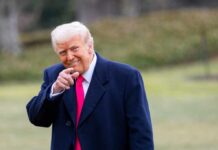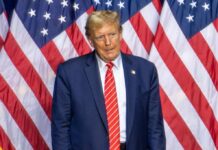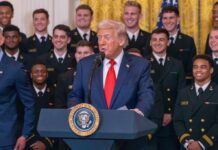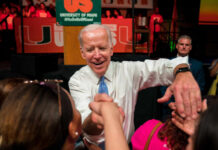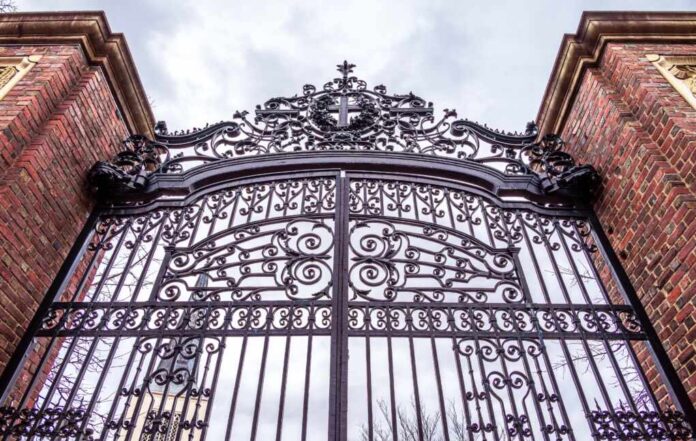
Harvard University’s prestigious reputation is being tested by accusations that it’s yielding to Chinese Communist Party influence, risking its academic independence and research integrity.
At a Glance
- Chinese dissident Teng Biao had an event canceled at Harvard due to concerns about damaging the university’s relationship with China
- A Harvard administrator postponed the event until after the university president’s meeting with Xi Jinping to avoid “embarrassment”
- Harvard has a century-long relationship with China that has grown increasingly complex as China’s global influence expands
- Critics argue Harvard is compromising academic freedom to maintain Chinese partnerships and funding
Academic Freedom Under Pressure
In 2015, Chinese human rights lawyer Teng Biao experienced firsthand how Harvard University’s relationship with China might be influencing academic decisions. As a visiting fellow at Harvard Law School who had previously been disbarred, detained, and tortured by Chinese authorities for his activism, Teng had found temporary sanctuary in American academia. His planned event with fellow dissident Chen Guangcheng was abruptly canceled, however, raising serious questions about Harvard’s commitment to academic freedom when Chinese government interests are involved.
“Because of my work, I was disbarred and put on a ban from teaching, and eventually fired from [China University of Political Science and Law] University. I was put under house arrest from time to time, and disappeared a few times — kidnapped by Chinese secret police, and detained and tortured.”, Teng Biao said.
The cancellation was later attributed to Professor William P. Alford, who requested that Teng postpone the event until after Harvard’s president had completed a visit to Beijing. The timing of the request suggested concerns about potentially embarrassing the university during high-level engagement with Chinese leadership, including a meeting with President Xi Jinping. This incident crystallized the growing tension between Harvard’s academic principles and its strategic relationship with China.
Elon Musk | NEW AI Company Major Announcement@xAI Twitter Spaces | July 14, 2023
(A breakdown of the most important details by an AI)Discussing the Philosophy Behind Building a Safe Artificial General Intelligence
Apologies for the delay, we've been waiting for all…
— Will COMPULYZΞ ⚡️🤖🚀 (@compulyze) July 15, 2023
A Century of Engagement
Harvard’s relationship with China extends back to the late 19th century, with the university playing a significant role in modernizing Chinese higher education and influencing policy development. This long-standing partnership has evolved substantially as China has grown from a developing nation into an economic and academic powerhouse. What began as Harvard exporting expertise to China has transformed into a more complex relationship where China now possesses significant resources and influence in the academic world.
“I am grateful that Harvard [could] host me for a year. It’s not easy, because I’m a dissident very, very critical of the Chinese Communist Party.”, added Biao.
Today, Harvard maintains extensive collaborations with Chinese institutions across multiple disciplines through initiatives like the Harvard China Fund and the Harvard China Health Partnership. These relationships involve significant financial investments, research partnerships, and academic exchanges. The university has positioned itself as building trust and fostering collaboration even as political tensions between the United States and China have intensified in recent years.
Balancing Relationships and Principles
Professor Alford, who was identified as the administrator who requested the postponement of Teng’s event, later defended his actions while emphasizing his commitment to academic freedom. His response highlighted the complex balancing act that Harvard administrators face when navigating relationships with authoritarian governments while attempting to maintain the university’s stated principles of free inquiry and expression.
“Having for years served on the Scholars at Risk Committee and for decades hosted a broad range of scholars and law related activists from China at HLS, I tried to make Dr. Teng’s time here academically fruitful. I invited him to speak in my class around the time in question, introduced him to colleagues and met with him frequently about his research, his plans, and his family. I did ask that he schedule the event in question after our University President had left Beijing.”, William P. Alford said.
The shifting power dynamics in Harvard’s relationship with China raise important questions about academic independence. As China has grown more assertive globally, critics argue that Harvard may be compromising its values to maintain access to Chinese resources, students, and research opportunities. Meanwhile, defenders of the university’s approach contend that engagement remains the most effective way to influence positive change and that maintaining these relationships serves both academic and diplomatic purposes.
— Chaos Coordinator (@idontexistTore) April 20, 2025



